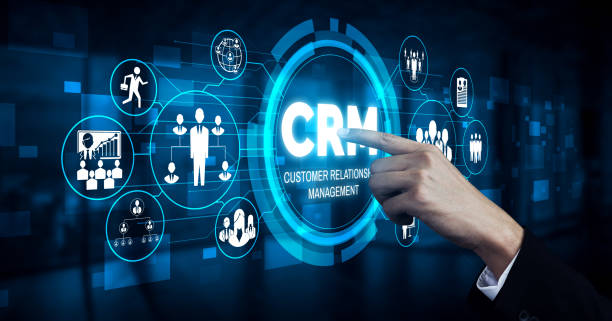

What can CRM software do for your business?
In today’s fiercely competitive business landscape, where client preferences and expectations are in constant flux, achieving maximum productivity stands as a pivotal factor for corporate triumph. Enter Customer Relationship Management (CRM) software – a potent tool that significantly contributes to operational efficiency by offering an array of features and functionalities to streamline processes, analyze data, and foster collaboration.
By centralizing customer data and providing insightful metrics on customer behavior, businesses can make informed decisions and tailor their offerings to better align with customer demands. Moreover, CRM software expedites the sales cycle, enhances customer satisfaction, and bolsters client retention, all of which ultimately lead to amplified sales and profitability. Consequently, the selection of appropriate CRM software tailored to a company’s specific needs, coupled with robust employee training and support, forms the bedrock of successful adoption.

Here’s an exploration of how companies can harness the potential of CRM software to elevate productivity and achieve sustainable success:
-
Centralized Database for Enhanced Efficiency: CRM serves as a unified repository, offering a singular location to store and promptly retrieve client information. It facilitates task creation and assignment to designated employees, ensuring effective completion. This technology diminishes the risk of vital client data being lost by offering a centralized hub for client contact details.
-
Elevated Lead Quality: An efficient CRM optimizes the allocation of time and resources among employees. Drawing on provided information and interaction tracking metrics, a CRM system can furnish crucial insights into the leads most likely to convert. It also streamlines tasks like scheduling meetings and sending follow-up emails, freeing up valuable time for more critical endeavors, such as closing deals.
-
Insights and Analysis from Data: CRM software aggregates and retains extensive data on customers, their preferences, and interactions with the company. These insights can be harnessed to gain a deeper understanding of customers’ needs, leading to the refinement of products and services. Data analysis unveils patterns and trends in customer behavior, enabling customized marketing campaigns and strategic promotions, thus guiding future business decisions.
-
Efficiency through Task Automation: Automating repetitive tasks is a cornerstone benefit of CRM software. This automation liberates resources and time, allowing staff to focus on more impactful projects. For instance, the sales team can delve into customer history, prior interactions, and purchasing trends to better grasp customer requirements. The customer support team can swiftly address customer concerns armed with the same dataset. This seamless collaboration augments productivity and enriches customer service.
-
Enhanced Team Collaboration: CRM software consolidates data into a singular repository accessible to all team members, optimizing information retrieval. This feature proves invaluable when multiple team members collaborate on the same account and require access to vital information. The CRM system eradicates the need for tedious searches and allows the team to quickly access a customer’s history. Collaborative tools like task management and document sharing foster seamless coordination, ensuring teams stay up-to-date on the latest developments.
-
The Imperative for CRM Software: The manifold benefits of CRM software offer a multitude of avenues for enhancing business efficiency. By leveraging data analytics, insights, qualified leads, task automation, and improved teamwork, businesses can drive productivity, amplify revenue, and secure profitability. Choosing the right CRM software that aligns with company needs and providing requisite training are paramount to fully realizing the benefits.
-
Harnessing the Potential: Implementation of CRM software has the potential to be a game-changer for businesses aiming to optimize operations and gain a competitive edge. Through data and automation, firms can elevate customer service, refine processes, and augment revenue. To achieve a seamless implementation, investing in the right CRM software and empowering staff with the necessary training and support are critical components.
In essence, CRM software isn’t just an option – it’s a strategic necessity for businesses striving to magnify efficiency and attain a competitive advantage. With the power of data and automation at their disposal, enterprises can propel customer service excellence, streamline operations, and bolster their bottom line.
